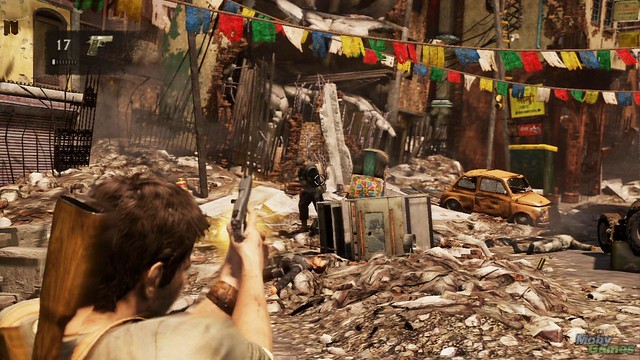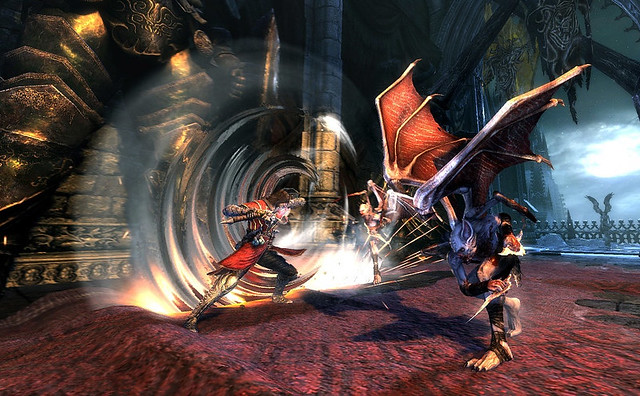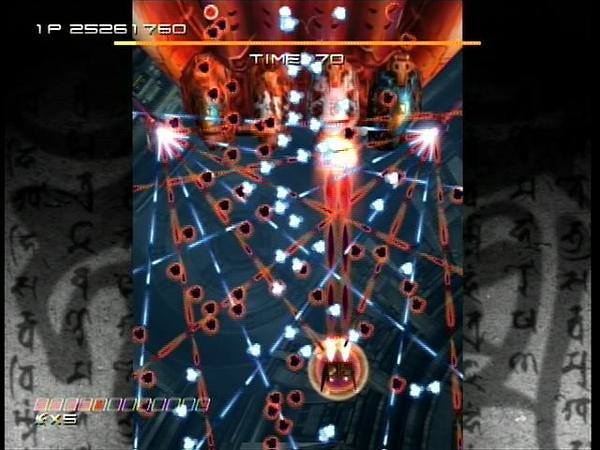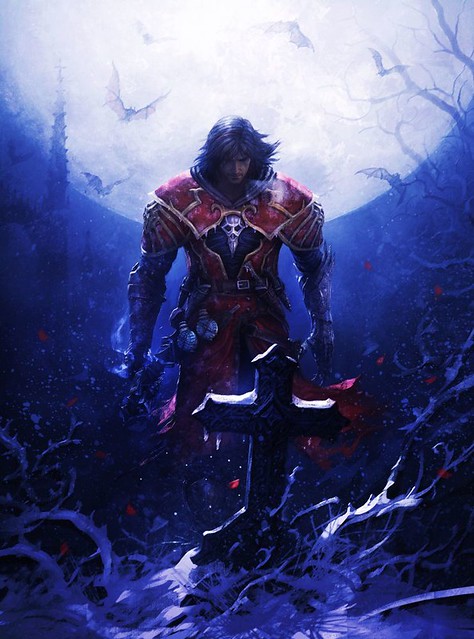as I'm thinking of getting back into indie development, I'm considering these things myself. I'm thinking: how can I make a double dragon clone that has its own identity? that learns from the past, but looks toward the future?
Owning Your Mechanics
|
|
On 05/07/2013 at 02:10 PM by daftman See More From This User » |
Why Uncharted 2 feels like its own game and Lords of Shadow does not
(WARNING: I totally spoil the ending of Lords of Shadow in this blog but if you paid any attention to the buzz around Mirror of Fate earlier this year, then it’s already been spoiled for you. But you have been warned regardless.)
There’s a passage in the Bible that says there is nothing new under the sun and that certainly holds true for games. Very rarely does a game do anything that feels truly innovative. Most games are content to rehash ideas put forth by others, and that’s not necessarily a bad thing. Both Uncharted 2: Among Thieves and Castlevania: Lords of Shadow rely on the mechanics seen first or best in other games, but Uncharted 2 establishes its own identity whereas Lords of Shadow feels like a Frankenstein’s monster of ideas from other games.
Uncharted 2 has two major gameplay systems: platforming and gunplay. (It also has hand-to-hand combat, which as far as I know is not taken from another game, but its impact on the game is negligible since you can play through the entire game and hardly touch it.) The platforming is taken from Prince of Persia (Sands of Time and following) and what an experience it is! The Prince would be proud. Not only does Nathan Drake handle wonderfully but the excellent level design also keeps enough variety in the situations and challenges that it never feels like a chore to get from point A to point B. As for gunplay Among Thieves borrows the cover-based system from Gears of War, like so many games this generation. It dials back the ridiculous number of shots the grunt enemies can take and varies the terrain to keep each firefight fresh, thus dealing with the two major complaints with its predecessor.

Bad time to reload, buddy
Castlevania: Lords of Shadow also has two major gameplay systems: platforming and melee combat. (It also has a couple of titan boss battles that totally crib Shadow of the Colossus but they’re very infrequent and, well, more frustrating than fun.) Like Uncharted 2, Lords of Shadow takes its platforming cues from Prince of Persia and does it fairly well. There isn’t as much variety as U2 and melee combat cannot be freely mixed with the platforming like gunplay can, but you could chalk that up to the nature of the game without doing much damage to LoS. The combat is from God of War and is easily the highlight of the game. Your character, Gabriel Belmont, controls well and has a varied moveset and the enemies are interesting without being overly repetitive.

Gothic beatdown!
So if both games borrow their mechanics yet make good use of them, why does Uncharted 2 feel like its own game and Lords of Shadow does not? There are two things, in my opinion, that can give a game its identity. The first is gameplay, which we just covered and determined that neither game is original in that department. Games by Treasure are generally good examples of identity-through-gameplay. Look how your ship polarity is the game in Ikaruga or how Mischief Makers is built entirely around grabbing and throwing. What’s going on in the stories for those games? Who cares! They’re fun to control and play.

Saving the world...?
But that does raise the question of story, which is the second way a game can identify itself. Uncharted 2 excels here at making a cast of likable characters and putting them in situations that keep the player engaged. There are so many twists and turns and cliffhangers (sometimes literal!) that it’s hard to put the controller down. You come to care about the characters and want to find out what happens in their wild treasure hunt.
Unfortunately, this is where Lords of Shadow stumbles. Things start well enough. A man trying to find the power and means to resurrect his dead wife. But where U2 builds an ensemble of personalities around your central character, LoS sends Gabriel on his journey alone. This narrative choice would be fine given the nature of the game but the developers attempt character development by means of the narrator’s distant observations of Gabriel and it falls flat. He’s constantly saying how Gabriel is increasingly driven by rage and is being consumed by darkness and as the player you simply do not see it. You would have no idea if the narrator didn’t tell you. So when you get to the easy-to-guess reveal in the epilogue that Gabriel became Dracula, it feels very arbitrary. You’re told he’s been going this way but you never see it. Using no overt character development and leaving the player to infer the changes in Gabriel would have better served the game. And it certainly didn’t help that it threw everything Castlevania-y out the window. With Dracula’s existence now established, perhaps the sequels will make better on the moniker Castlevania, though Mirror of Fate was not a strong step in that direction.

"I am consumed by rage and darkness because...well, just 'cause, okay?"
Good games may not necessarily establish their identity but great games do. Uncharted 2, unlike Lords of Shadow, makes judicious use of story and characterization to draw its gameplay mechanics into its world and melds its disparate parts into a cohesive whole. There’s hope for this Castlevania reboot, certainly, but it must establish what sort of game and series it is, not just in mechanics, but also in character. As things stand right now, though, I know which one I’m more likely to replay.





Comments